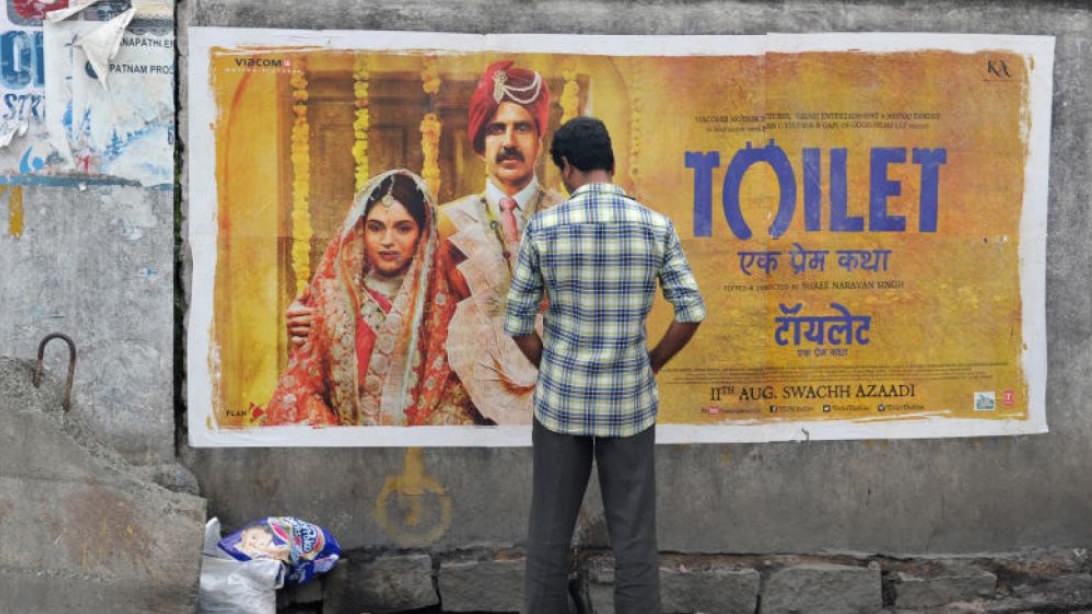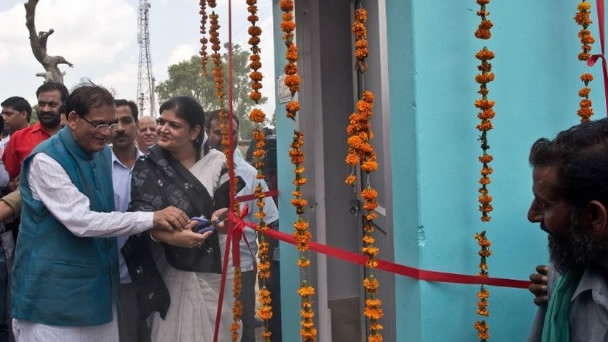
Politics
19:21, 12-Nov-2017
India rejects UN official's criticism of sanitation drive
CGTN

The Indian government has rejected criticism of its ambitious sanitation program by a United Nations official who said lower-caste communities had their rights violated by being left to clean toilets built in a nationwide drive.
Prime Minister Narendra Modi launched the Swachh Bharat Abhiyan, or Clean India Mission, with much fanfare after he took office in 2014. The main aim is to eliminate open defecation by October 2019 by building individual and public toilets.
But activists say the campaign has failed to end the practice of manual scavenging, or clearing feces by hand, and has even exacerbated the problem because the toilets are not connected to water supplies or the sewage system.

India's lack of sanitation facilities has proven a contentious topic. /AFP Photo
India's lack of sanitation facilities has proven a contentious topic. /AFP Photo
The UN special rapporteur on the human rights to safe drinking water and sanitation affirmed those observations.
The emphasis on building toilets should not “contribute to violating fundamental rights of others, such as those engaged in manual scavenging, or ethnic minorities and people living in remote rural areas,” Léo Heller said in a statement on Friday.
The Indian government dismissed Heller’s “sweeping judgements” as “either factually incorrect, based on incomplete information, or grossly misrepresenting the situation.”
Despite laws to end the practice of manual scavenging, a euphemism for clearing feces from dry toilets and open drains by hand, it is prevalent in many Indian states.
The Indian government has shown “unprecedented commitment” in tackling the gaps in sanitation, but it also needs to adopt a humanitarian focus in addressing the issues, said Heller, who will submit a full report of his findings in September 2018.
4181km
Source(s): Reuters

SITEMAP
Copyright © 2018 CGTN. Beijing ICP prepared NO.16065310-3
Copyright © 2018 CGTN. Beijing ICP prepared NO.16065310-3